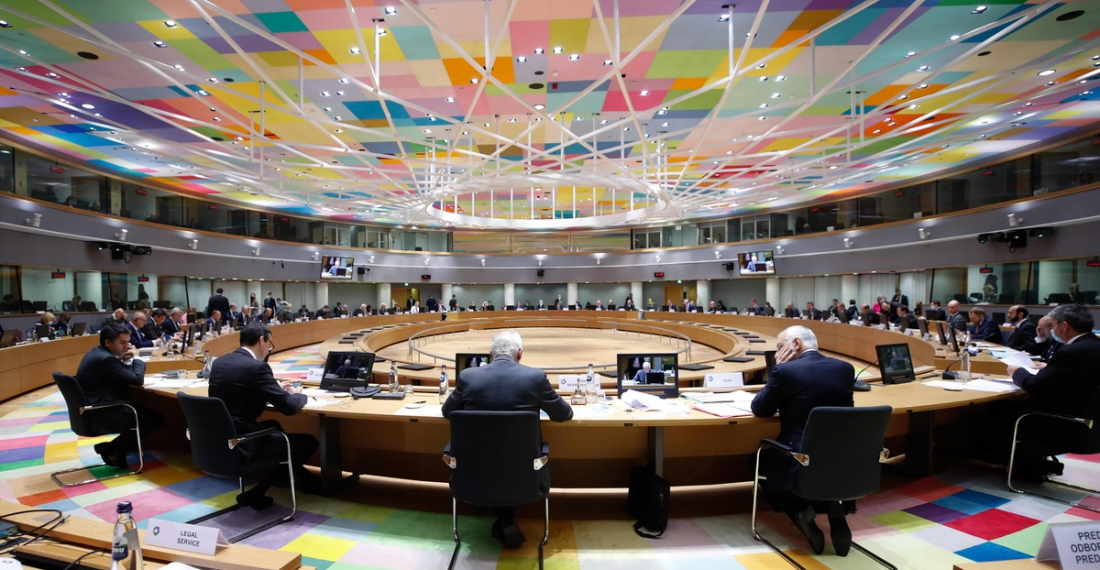A summit between the European Union and the Eastern Partnership (EaP) countries will take place in Brussels on 15 December. In preparation, the foreign ministers of the EU27 and those of Armenia, Azerbaijan, Georgia, Moldova and Ukraine met in Brussels on Monday (15 November). Belarus was not invited. Its seat was symbolically left empty to signify that the people of Belarus were not being excluded from the process – only its government.
In their three hour meeting on Monday, the foreign ministers took stock of the progress to date and actively prepared for the upcoming Summit. Various sources told commonspace.eu that it was a positive meeting. The foreign minister of one of the EaP countries said it was a good meeting and there was “a very good exchange of views”. The meeting made some progress with the adoption of a draft summit declaration. The document will continue to be ironed out for approval by the Heads of State and government on 15 December. It is expected to provide a reinvigorated vision to the EU-EaP cooperation and endorse the post-2020 agenda. It was reported that Ministers also touched on the practical implementation of the new and ambitious EU-EaP future agenda.
The ministerial meeting was an opportunity for the EU to reaffirm its strong commitment to the region, and the political will to cooperate in addressing common challenges.
Since it came into being in 2009, the Eastern Partnership has had a chequered record. On the one hand, it has been effective in taking forward a number of major and ambitious projects aimed at increasing prosperity and resilience in the countries of the region. It has also provided a political framework for the cooperation between the EU and the EaP six states. It has resisted attempts by Russia to sabotage its work.
But some consider that the EaP has fallen short of expectations. Three of the six countries – Georgia, Moldova and Ukraine – have EU membership aspirations, and have recently come together in the format of the “Associated trio” to seek a membership perspective. Belarus’ membership is currently in limbo given the standoff with the EU following flawed presidential elections last year. Armenia and Azerbaijan remain engaged with the process but for different reasons often appear aloof from it. The EU is disappointed that the process of reforms in the EaP is often sluggish.
But one of the reasons why the EaP is not as effective as it should and can be is institutional. Two different segments of the EU – the European External Action Service and DG Near are responsible for the framework. The European Council is also often heavily involved. The three do not always see eye to eye, and even worse their appears to be a different culture in their workstyle and approach which often results in confusing messages and clumsy implementation.
The EU has, by and large, refused the idea of differentiation in addressing the broader aspirations of EaP states, whilst accepting the principle with regards to more for more. Constantly there are tensions between the expectations of the EU institutions and those of the EaP states, with the EU27 often playing a muddled role in the middle.
The EaP has been a conduit for transferring EU assistance to the EaP countries, but the EU keeps being disappointed that the generous cash fails to earn it the kudos it thinks it deserves in the region. It has become popular to blame fake news and disinformation for this dilemma. However, a big part of the problem is closer to Brussels. More efficient management of relations with the EaP and the broader problems of the regions is necessary. As a start, it is necessary to accept that the EaP is not a bundle of projects but a political instrument and needs to be managed and approached with political and diplomatic acumen first and foremost.






